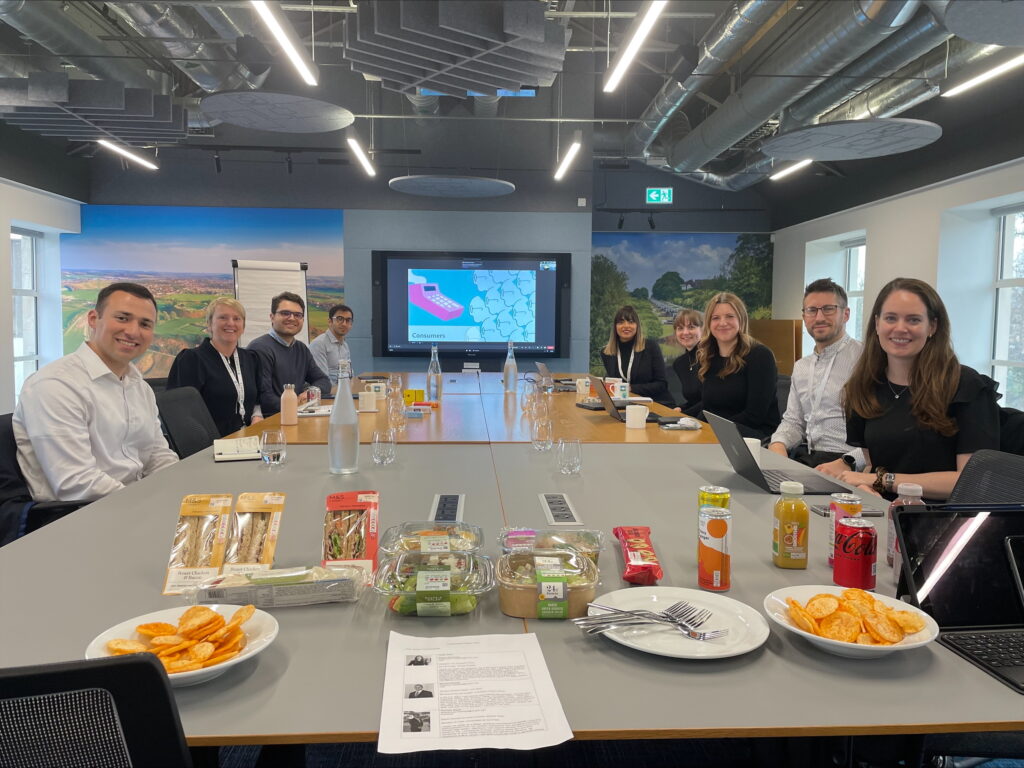
By Michael Doherty, MBA2026
When I was applying to London Business School nearly two years ago, one of the aspects of the MBA programme that excited me most was LondonCAP. I loved the idea of working on a project that would have real impact for a real company, and I knew I wanted to get a taste of life in consulting. Now that the course has officially wrapped up, I can say it was everything I had hoped for and even more.
Project Assignment
Before the start of the course, the list of available clients and projects was released to all of the students who chose to enrol, and each student ranked the projects from most to least preferred. I was fortunate enough to be assigned to my first choice, which was to develop a marketing strategy for a product at a UK-based pharmaceutical company. Some of my closest friends work in the pharmaceutical industry, and I wanted the chance to understand it better by seeing it up close. Even more fortunately, I was placed on a team with four of the most intelligent, creative, and hard-working people in the MBA programme: Maggie, Gonzalo, Susan, and Devansh.
Meeting the Client

On the morning of 20 February, the five of us took a train together to meet with our client for the first time. Our main points of contact within the company were part of the marketing team, and during the first meeting, they described the project we would be completing in detail.
One of the company’s products was a prescription multivitamin, used primarily to treat malnutrition in patients. A few years ago, the company began to manufacture a food supplement version of the product due to production issues with the prescription product. The food supplement, an effervescent multivitamin tablet, was then made available for purchase on Amazon. Because the company has a host of other products, they had not been able to devote significant time or attention to a marketing strategy for this supplement. Our team’s task was to determine if the product was a “hidden gem,” and if so, to develop a brand strategy for it to increase revenue.
After the marketing team described the task, we had the opportunity to sample the multivitamin itself and to ask questions to guide our initial research. The company was wonderful about making sure we had access to all of the relevant data they had obtained. Armed with some of this data and some initial hypotheses, we returned to London and began to get to work.
Tackling the Problem
One of the most difficult aspects of the project was knowing where to start. Our objective seemed simple enough on paper, but there were seemingly infinite possibilities to explore in order to answer the client’s question. Our faculty advisor, Professor Helen Edwards, helped us organize the project into more manageable components during our first meeting and also emphasized how important it was that we immediately dive in and conduct research to lay the groundwork for the next ten weeks.
We met as a group at least once a week to share our findings and ideas and to come up with an approach for the next week’s work. As the project progressed, our ideas became more focused, and we became more effective at dividing the workload during each meeting.
Presenting Findings
Throughout the ten weeks, we had occasional check-ins with the client to discuss our recommendations and agree upon next steps. Originally, we expected our focus to narrow after each check-in and ultimately lead to a very specific and concrete final recommendation. However, the client explained that they wanted to keep a wide range of options available for implementation at different stages over the next several years. Consequently, in our final update to the client, we presented a host of ideas. Some ideas were as simple as targeting previous users of the prescription multivitamin to boost sales of the food supplement. Others were more complex, such as our proposal to reformulate the supplement and offer a suite of products to address different customer needs.
Ultimately, the client was pleased with our final presentation and the recommendations we suggested. While I’m sure this is not always the case in consulting, it felt great to know that our work was appreciated and may lead to new strategic initiatives at the company.
Lessons and Takeaways
For me, the most valuable lesson of LondonCAP was learning how to work for and with an external client. In my previous role in the military, I had never had the opportunity to work on a project for any organization outside my own, so it was enlightening to see how the client-consultant relationship functions in practice. I learned how important it is for a team to communicate with the client honestly and openly, even when the findings or recommendations may not be what the client wants to hear. From Professor Edwards, we also learned the importance of being clear with the client about our intended next steps after each meeting. This helped us stay aligned in our expectations and avoid wasting time or energy on the wrong tasks.
My team and client made LondonCAP an enjoyable experience, and I am grateful that I had the chance to participate. I would recommend the course to anyone who is interested in building communication skills, wants to have an impact outside of the classroom, and is willing to challenge themselves while working in a collaborative team environment.
